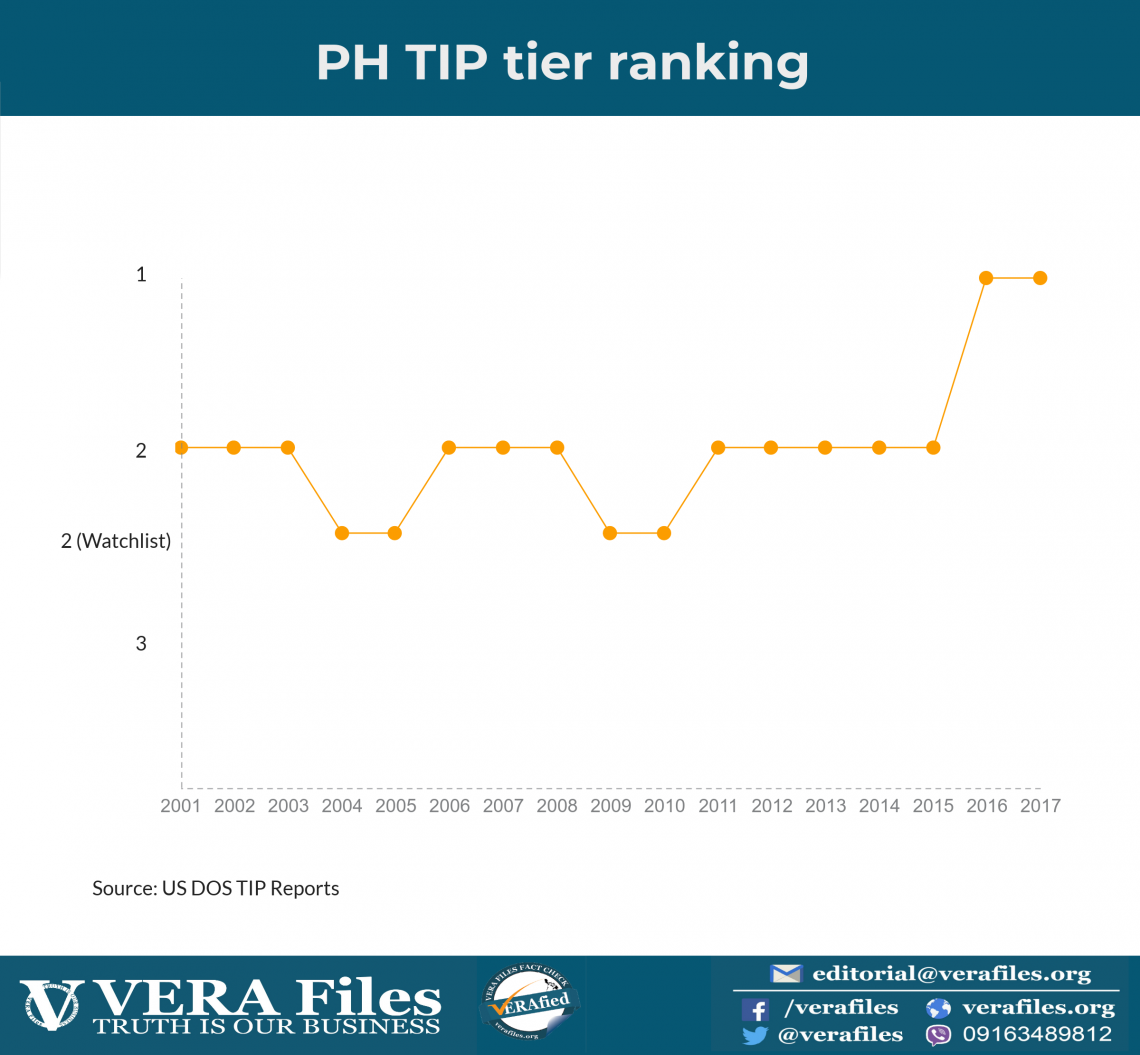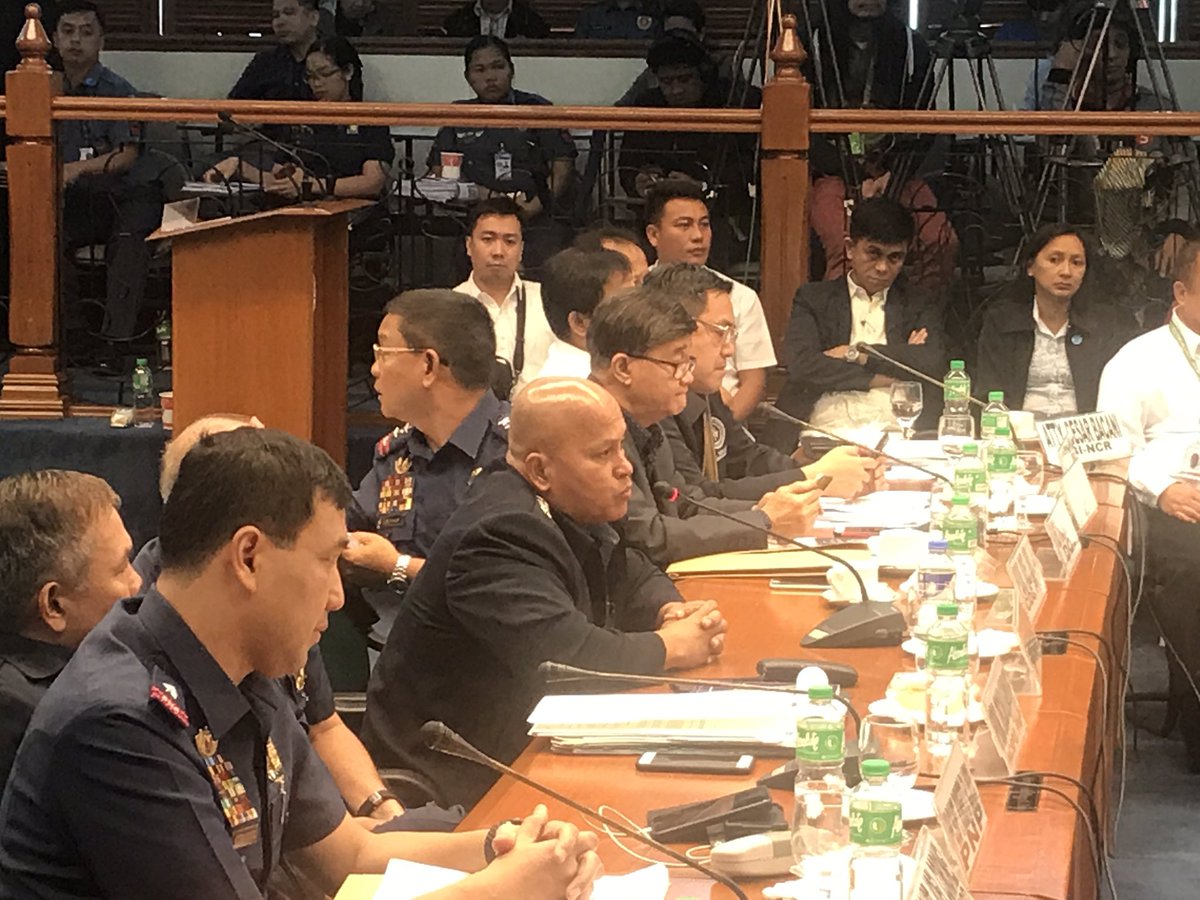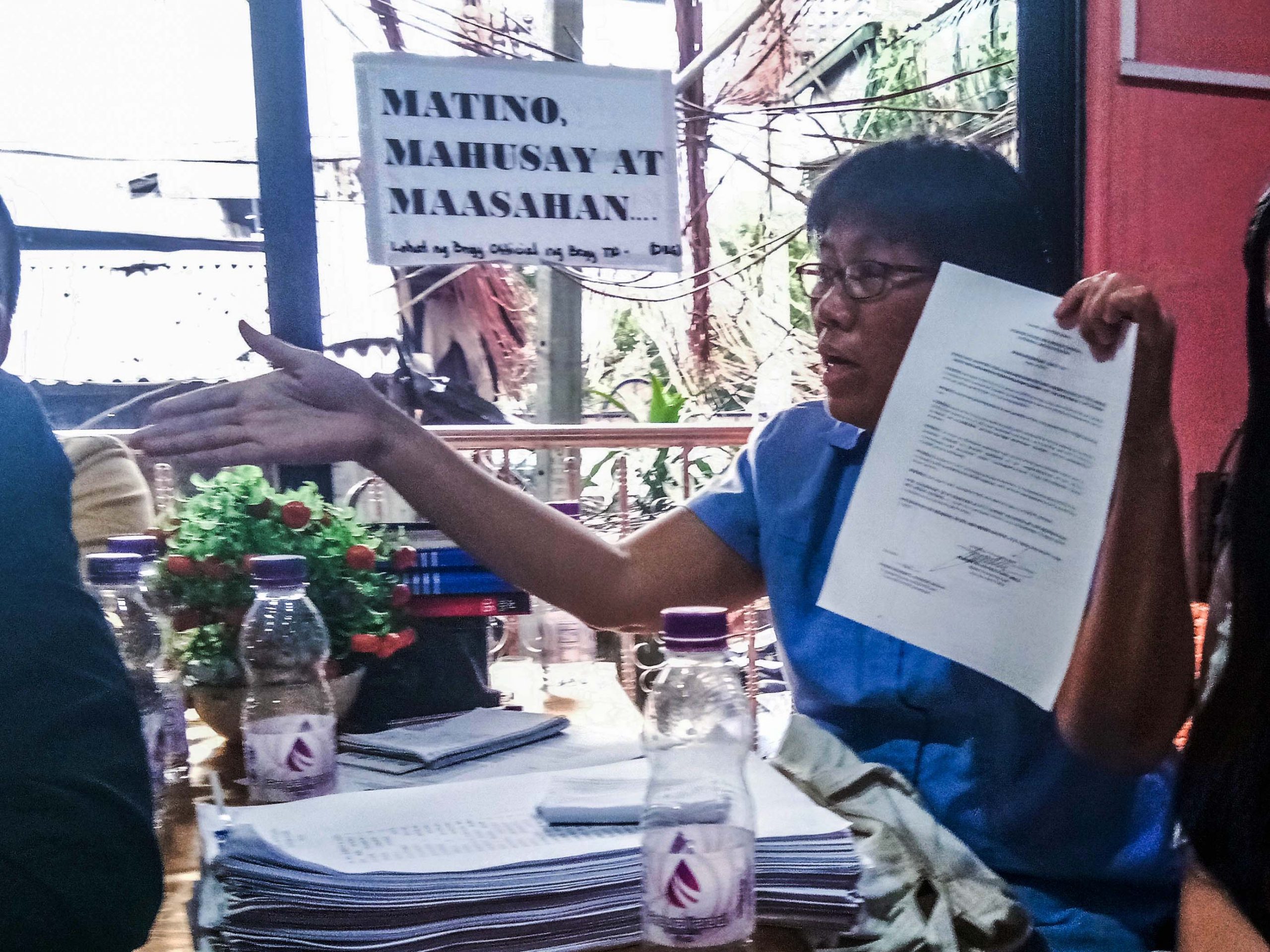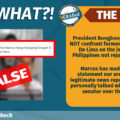Detained Sen. Leila De Lima, a critic of President Rodrigo Duterte, in a Nov. 8 commentary hit the current administration’s war on drugs, comparing it unfavorably to her “fight against human trafficking.”
“I championed the fight against human trafficking or modern-day slavery,” De Lima wrote, recalling her days as justice secretary during the Aquino administration.
“It might not have had such a sensationalistic bloody appeal as the so-called ‘war on drugs,’ but the result speaks for itself,” the senator, in jail for drug-related charges, added.
Here are three facts about the country’s war against human trafficking.
Human trafficking defined
Republic Act No. 9208, or the Anti-trafficking in Persons Act of 2003, defines human trafficking as:
“the recruitment, transportation, transfer or harboring, or receipt of persons with or without the victim’s consent or knowledge, within or across national borders by means of threat or use of force, or other forms of coercion, abduction, fraud, deception, abuse of power or of position, taking advantage of the vulnerability of the person, or, the giving or receiving of payments or benefits to achieve the consent of a person having control over another person for the purpose of exploitation which includes at a minimum, the exploitation or the prostitution of others or other forms of sexual exploitation, forced labor or services, slavery, servitude or the removal or sale of organs.”
Both “sellers” and “buyers” of trafficked persons face a range of prison terms and fines.
Stiffer penalties await perpetrators of “qualified trafficking,” which applies when the operation involves three or more traffickers or trafficked persons; when the trafficked person is a minor, dies, is mutilated, becomes insane, or contracts HIV; or when the trafficker is a person of authority, a public official, a member of the military or a law enforcement officer.
RA No. 10364 expanded the law in 2012 to include in the definition the acts of obtaining, hiring, providing and offering trafficked persons, and to penalize attempted trafficking and accomplice liability.
Trafficking convictions
The Inter-Agency Council Against Trafficking (IACAT), the body that coordinates and monitors the implementation of the country’s anti-trafficking laws, as of Oct. 15 has recorded 319 human trafficking convictions involving 340 persons since R.A. 9208 was enacted in 2003.
A total of 65 convictions were secured during the Duterte administration, but IACAT records show the majority were filed during the previous administration.
The state secured its first conviction in November 2005.
The Zamboanga City Regional Trial Court found Hadja Jarma Lali and Ronnie Aringoy guilty luring three women from Zamboanga City to work in a restaurant in Malaysia, where they ended in a prostitution den.
Aringoy appealed the decision, but the Supreme Court affirmed the RTC ruling and increased the amount of moral and exemplary damages.
PH’s tier status in the TIP report
De Lima in her commentary said the country’s human trafficking convictions “resulted in the elevation of the Philippines to Tier 1 Status, up from where it was languishing at Tier 2.”
The senator is referring to the rating system used by the U.S. State Department in its annual Trafficking in Persons (TIP) report.
The Philippines secured its Tier 1 ranking in June 2016, before Duterte’s inauguration as president, and maintained the rating this year, which means it fully complies with the minimum standards in combating human trafficking.
Yet, significant problems remain.
The 2017 TIP report contained recommendations for the country to among others increase the number of shelters and programs for male trafficking victims, do more to address labor trafficking, improve case data collection, and investigate government officials involved in human trafficking operations.
The government needs to demonstrate significant progress to maintain its Tier 1 rating.

Before 2016, the Philippines was rated either Tier 2 or Tier 2 Watchlist.
Tier 2 means the government did not fully meet the minimum standards but exerted significant efforts to comply, while Tier 2 Watchlist means trafficking cases rose or the government failed to provide evidence of efforts to combat trafficking.
Three consecutive years in Tier 2 Watchlist would downgrade the country to Tier 3, which means it does not meet the minimum standards and are not making significant efforts to do so.
Having Tier 3 rating would subject a country to restrictions on non-humanitarian and non-trade-related assistance from the US government.
Sources:
Trafficking in Persons Report 2017
Trafficking in Persons Report 2016
Trafficking in Persons Report 2009
Inter-Agency Council Against Trafficking, Updates on Trafficking in Persons Convictions
Commentary by Sen. Leila De Lima, On Harry Roque, the Truth Bender for Hire
RA 9208, Anti-Trafficking in Persons Act of 2003
Expanded Anti-Trafficking in Persons Act of 2012
Matrix of cases decided in 2017
(Guided by the code of principles of the International Fact-Checking Network at Poynter, VERA Files tracks the false claims, flip-flops, misleading statements of public officials and figures, and debunks them with factual evidence. Find out more about this initiative.)




